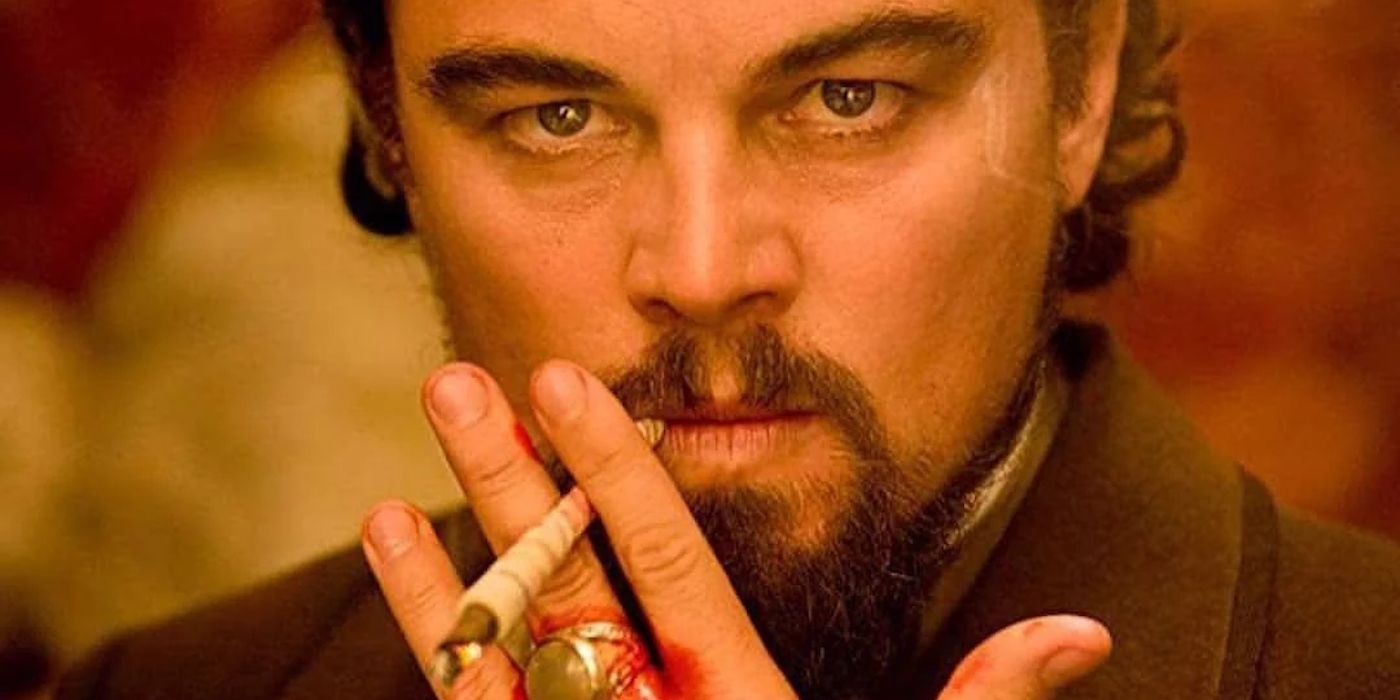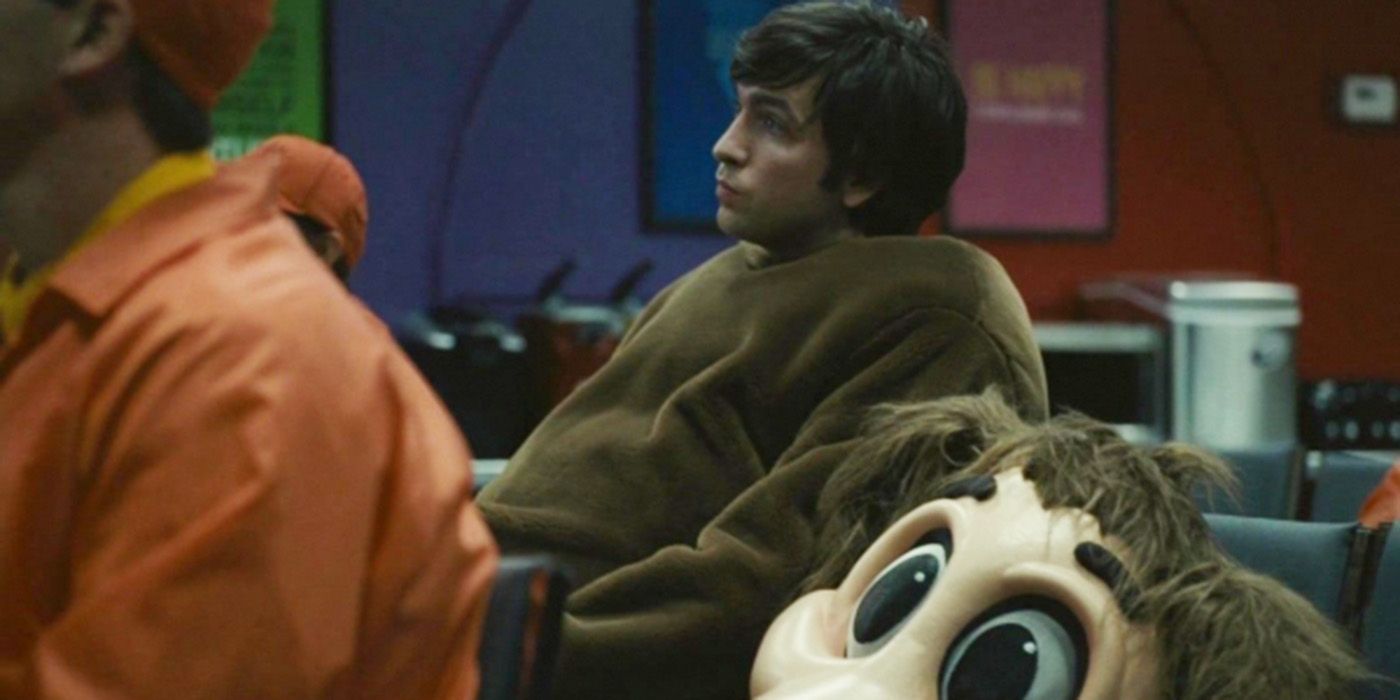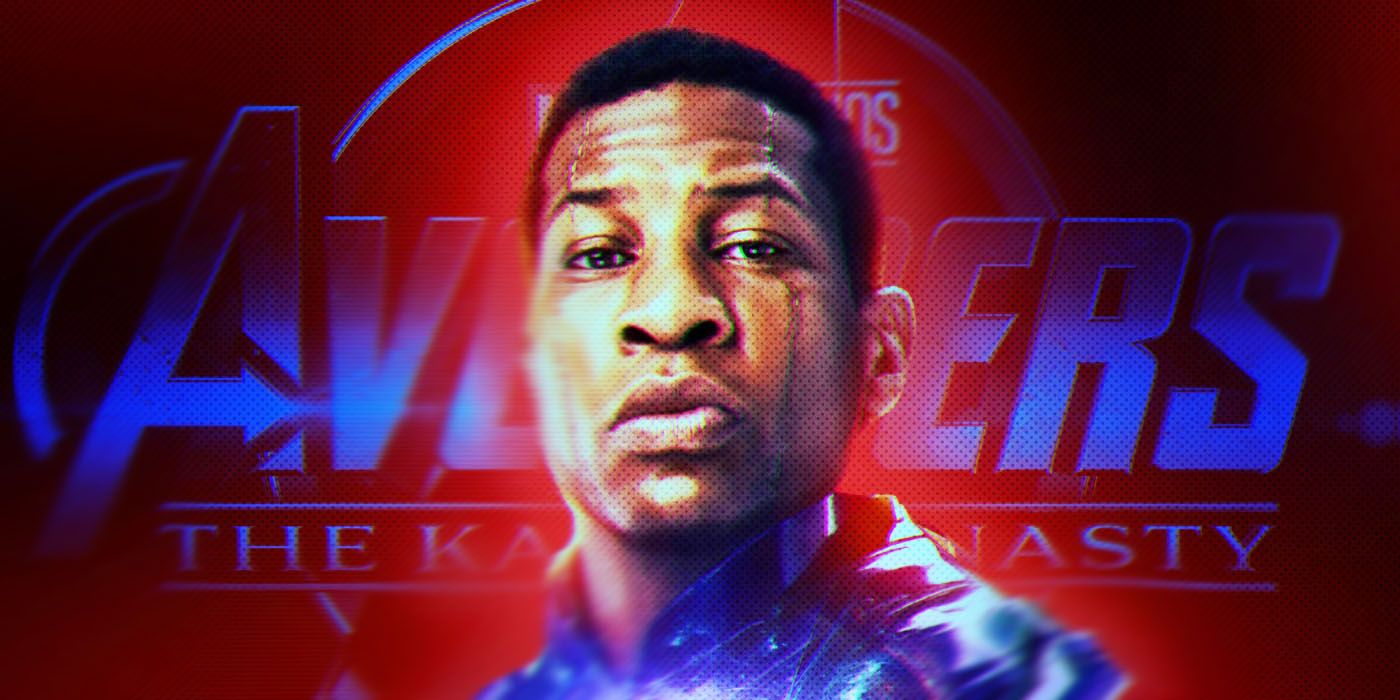Trigger Warning: The following references graphic violence.
The Big Picture
- Calvin Candie is a terrifying villain because he represents the worst of humanity and believes his actions are justified.
- Candie’s privileged upbringing and unchecked power make his vile behavior socially acceptable in his environment.
- Quentin Tarantino and Leonardo DiCaprio both found the character despicable, but DiCaprio’s performance brought complexity and faux gentility to the role.
There is no villain in any Western that makes stomachs roil with disgust like Leonardo DiCaprio’s portrayal of Calvin Candie in Django Unchained. What makes the character particularly revolting is that Candie directly opposes all things decent, from his vaguely incestuous relationship with his widowed sister to the causal way he feeds a terrified slave to dogs; Candie is all things wrong. Candie is narcissistic, volatile, arrogant, entitled, and cruel. His mannerisms are grandiose and befitting of a French monarch, punctuating his affected and racial epithet-laden speech with drags from an absurdly long ivory cigarette holder. He offends us profoundly because, under the right conditions, anyone could be Calvin Candie. Good villains, after all, do not know they are bad.
Candie truly believes he is good. In the dinner scene at the Cleopatra Club, Candie professes his belief in Phrenology. He lounges laconically in his chair as he argues this quackery to his guests with total confidence. No one interjects or tries to dispel his reasoning. They agree. They laugh. He fills the chair with his body in stark contrast to the shrunken demeanor of his slaves. He slaps the table and laughs loudly while his slaves observe uneasy silence. Later, as he saws open the skull of Old Ben, he tells Django (Jamie Foxx) the inside of his skull will look the same because he is born to serve. His chilling theatrics are used to illustrate the point that he is superior. His effortless, put-together Southern charm rapidly dissolves into white-hot rage when challenged. Candie, being angry that the pair have duped him, tries to re-assert his dominance. Django’s ability to fool Candie will not stand. In Candie’s mind, it is an insult to nature. So, as his hammer hovers over the head of Broomhilda (Kerry Washington), audiences know that she is as good as dead if Django and Schultz (Christoph Waltz) do not give him what he wants. Calvin Candie is a dark reflection of humanity whose perverse power, volatility, and affected boredom make him the perfect Western villain.
Django Unchained
With the help of a German bounty-hunter, a freed slave sets out to rescue his wife from a brutal plantation owner in Mississippi.
‘Django Unchained’s Calvin Candie Is a Product of His Environment
Calvin Candie exemplifies unchecked power and the status quo. His unfathomably vile and cruel behavior is so terrifyingly acceptable to people that it’s just business as usual. This is painfully evident as Candie and his cronies revel in the mandingo fight taking place out in the open in the Julius Cesar Suite at the Cleopatra Room. Nobody can stop him, and nobody would ever think to. Writer/Director Quentin Tarantino has built a world that thrives on cruelty, and Monsieur Candie and Django are products of that cruelty. Consider Django’s experiences on the Carrucan Plantation. Django is brutalized, chained, muzzled, and stares defiantly into the eyes of Old Man Carrucan. He tells Django that he “has sand.” Old Man Carrucan hints toward Django’s potential as a hero here as he acknowledges Django’s spirit. Later, as Django, Candie, and Dr. King Schultz watch as D’Artagnan (Ato Essandoh) is torn apart by dogs, he tells Candy that “he is more used to Americans” than Schultz, who has been traumatized by the experience. The cruelty Django has experienced is the fire that has tempered his steely resolve. Django is who he is precisely because men like Calvin Candie exist.
Candie, too, is a product of his environment. As Django and Schultz are led to the Julius Cesar Suite, Candie’s lawyer informs them that he and his employer have been friends their entire lives. Candie’s father had also put his father through law school. This revelation illustrates how deeply entrenched the Candie family is in High Society. Candie is a product of generational wealth and the owner of the fourth-largest cotton plantation in Mississippi. He understands his place in society. This is made clear as he recounts the tale of Old Ben and waxes poetic about Ben’s inability to slit his master’s throat. If not born to serve, then why not kill their oppressors? He giggles and proudly professes that had it been him, he would have cut his father’s throat without a second thought. Such thoughts are natural to privileged monsters like Candie but unthinkable to anyone with a soul, like Old Ben. Candie validates his inhumanity by invalidating the humanity of Black people.
This life of privilege has afforded him an aura of pomp and circumstance. Candie is surrounded by decadent locales filled out by “Comfort Girls,” beautifully dressed and adorning the room like living decorations. He is described as a Francophile, but his faux sophistication is cut short when the lawyer informs Schultz that Candie does not speak French and that doing so would only antagonize him. The cracks in Monsieur Candie’s facade begin to appear. His notoriously violent reputation earned him the respect of his peers and made him very rich. The world has rewarded his evil, so Candie is protected by the belief that what he does is just fine and dandy. That is, of course, until Django comes to town to upend the status quo and restore balance.
Quentin Tarantino and Leonardo DiCaprio Both Hated Calvin Candie
Good characters get under a person’s skin. A well-executed villain’s writer and actor must understand their point of view. Imagine sitting in front of a screen and plumbing humanity’s dark heart to try to adopt the viewpoint of Calvin Candie. How is something like that even possible? Tarantino has typically been able to see the viewpoint point of his villains, even the Nazi Hans Landa (Christoph Waltz) from Tarantino’s Inglorious Basterds. This ability to adopt a villain’s viewpoint gives them a saving grace and makes them bearable to watch. This was not true of Candie. In an interview with the Reel Bend podcast, Tarantino said he “really, really hated him.”
It is indeed challenging to see the viewpoint of Calvin Candie. What does the man with everything want? Why is he like this? That’s just it. Candie himself doesn’t even know. He suffers from the ennui of the privileged class. When he is first introduced, he is not at home managing the affairs of his plantation. No, instead, he is taking in a sadistic blood sport in detached boredom. He is obsessed with pleasure, a surrogate for meaning in a life devoid of it. His preoccupation with mandingo fighting speaks to this. Rather than using his wealth for something productive, he spends it on entertainment. His problem with D’Artagnan is that he wants five fights out of him, but D’Artagnan can fight no more. The issue here is not a concern for human life but the value of his money. Candie wants those five fights. He needs to be entertained above all else, and when he does not get it, he kills D’Artagnan. He wants entertainment from him, not labor.
Speaking in an interview with Entertainment Weekly, DiCaprio described Candie as “…one of the most deplorable, indulgent, horrendous characters I’ve ever read in my life.” and yet was able to bring a sense of ambiguity to Candie, a sort of faux gentility to the character. An eerie softness that cloaks his true nature. DiCaprio’s performance is significant because he gets to the heart of Candie’s motivations. This is what Candie wants: to be believed to be a gentleman even though he is a monster.
In Candie’s final scene, he demands Schultz shake his hand, which Schultz refuses. Candie is insistent on the handshake in part as a way to rub in his victory over Schultz and Django but also to re-establish his identity as a gentleman. Candie must maintain his veneer of civility because it is what he feels separates him from his slaves. He constantly dehumanizes them. Consider the condescending tone he takes with Stephen (Samuel L. Jackson) when informing him that Django will be staying in the big house. Or Candie’s disgusting casual tone as the two discuss punishing Broomhilda in the hot box. They regard her as one might consider a cat that has slipped out the front door instead of a human being they’ve just tortured. At dinner, as he rubs his bloody hand into her face, all while proclaiming she is less than human, Candie asserts that she is nothing but his property. But her timidity and fear belie a humanity that Candie severely lacks. As Candie holds a hammer over Broomhilda’s head, his true and monstrous nature is laid bare, and the veneer needs to be restored because, without it, he is nothing.
Why Is ‘Django Unchained’s Calvin Candie a Perfect Villain?
Candie is the perfect villain because he is humanity at its worst and most deluded. He is utterly revolting because he reminds audiences how evil someone can be while pursuing what they believe to be correct. In the case of Calvin Candie, the white man’s burden, Candie holds the detestable belief that white people have the right to manage the affairs of nonwhite people. Further still, he is a grim reminder of how society can enable, prop up, and reward the most detestable moralities. Candie and Django are essentially fighting over the same thing: control of Django’s life. Nowhere is this more evident than in the scene where Django hangs naked in the Livery after he surrenders to Stephen. As Stephen recounts how Django’s life at the LeQuint Mining Company will play out, he says, “…and that will be the story of you.” Candie is so powerful that even in death, through Stephen, he retains the right to control Django’s life.
While Django is the hero the world needs, Calvin Candie is the villain the world deserves. He is the greatest Western villain because he perfectly captures the runaway racist ideology of the Southern elite. He affects audiences so profoundly through his ostentatious and volatile theatrics that he drives terror into viewers’ hearts. Why? Because anybody who grew up in a world with all the privileges and zero hardships that Candie enjoyed could be just like him.
Django Unchained is streaming on Netflix in the U.S.
Watch on Netflix




